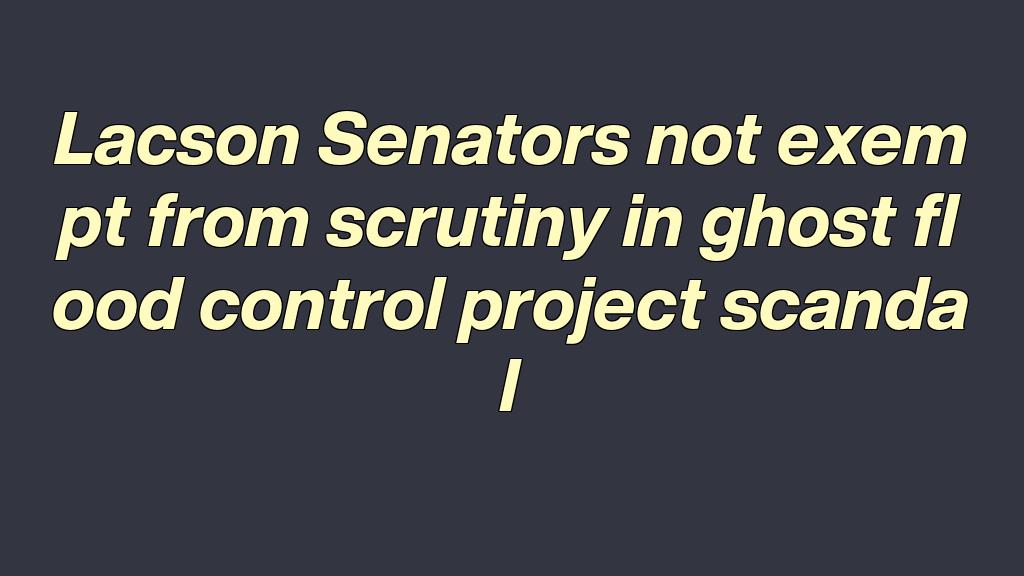MANILA, Philippines – Sen. Panfilo Lacson on Saturday warned that senators, along with members of the House of Representatives, may be complicit in the ongoing controversy involving anomalous and ghost flood control projects, reiterating his call for complete transparency in the national budgeting process.

Lacson said on radio that lawmakers from both chambers routinely propose budget amendments or "insertions"—a practice that, while technically legal, can be exploited to channel funds into questionable infrastructure projects.
“I’m not saying it’s only House members,” Lacson said in Filipino. “It’s possible that some senators have inserted funding for such projects and even profited from the 25 percent share typically given to the ‘funder’ or proponent.”, This news data comes from:http://gnshnsp.aichuwei.com
Pressed further on whether senators might be tied to these fraudulent schemes, the senator replied, “There may be senators and House members who are connected to anomalous flood control projects.”
Lacson: Senators not exempt from scrutiny in ghost flood control project scandal
Lacson, a long-time advocate for budget transparency, refrained from naming specific individuals, stressing the importance of solid evidence. “It’s not right to name names without proof,” he said. “In my case, I only make findings public once they are backed by factual and verifiable information.”
Lacson: Senators not exempt from scrutiny in ghost flood control project scandal
- Government work, classes on Tuesday suspended due to bad weather
- Navotas inks deal for school feeding project
- Go files housing development bill
- ‘Lannie’ to bring rain over NLuzon, southwest monsoon to affect Metro Manila, Calabarzon, Mimaropa —Pagasa
- PH Defense chief slammed for 'bad mouthing' China
- Duterte’s defense team outlines ICC strategy
- Wife and ally of ousted SKorean president indicted by special prosecutors
- PH, Australia, Canada hold joint sea drills
- Need to pee? Japan has QR code for that
- Ukraine's children start new school year in underground classrooms to avoid Russian bombs